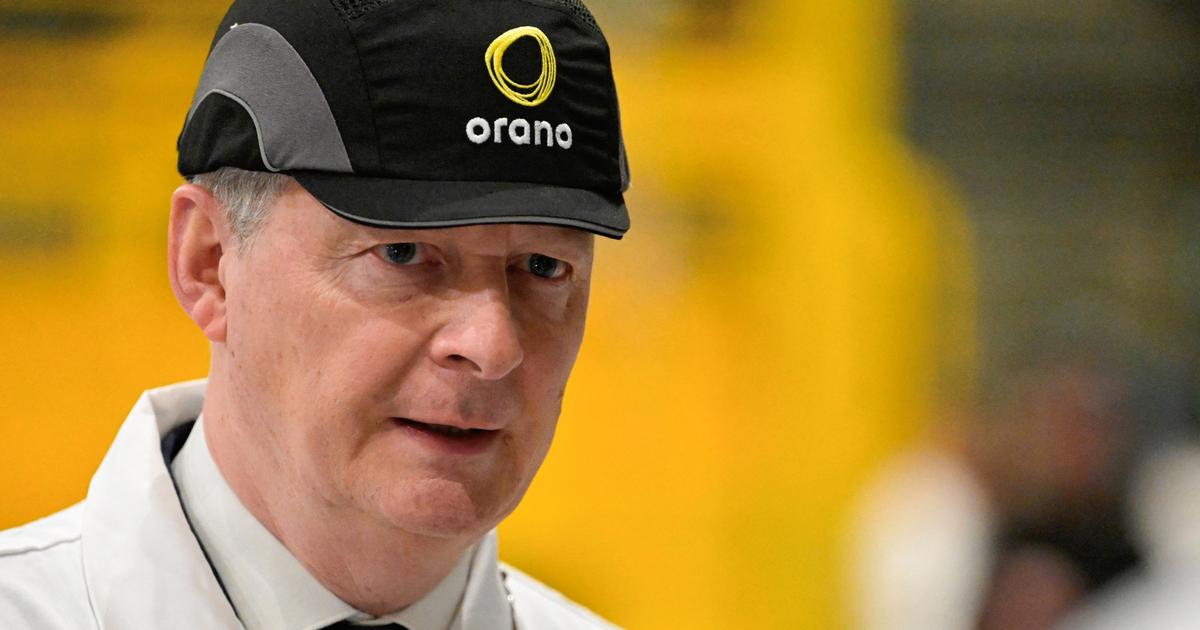Enlarge image
Photo: TOBIAS SCHWARZ / AFP
The wailing is loud.
With nuclear phase-out, marriage for everyone and "We can do it", Angela Merkel had terribly social democratized both party and country - and betrayed the conservative.
After 16 years of chancellorship, the lamentations are especially those in the country who tend to think conservatively.
Is this the reason why the Chancellor's party fell like this in the end?
And that the best thing to do now is to get conservative again?
The finding has been around for years - from the Chancellor, who moved to the left in order to win voters there without losing too many on the right.
Seems to have worked out pretty well.
For her.
The question is whether that is why the whole republic can be classified as terribly social democratized.
Which after 16 years of CDU chancellorship would of course be a bit sobering.
Or whether it's a bit of a mirage too.
Quite possible.
There is even some evidence that Germany, after 16 years of Merkel, is all in all still very conservative in an international comparison.
And that the image of the ex-chancellor is deceptive.
Consolation for conservatives.
Even if not necessarily for the country.
Of course, it is not part of species-appropriate conservative thinking to switch off a supposedly proven nuclear power or to supplement the traditional concept of family with marriage for people of the same sex. To name the two most frequently cited examples of supposed social democratization.
But there are a lot of other things that shape life in the country. And the question is whether the findings are really that bad for conservatives. At least in terms of what is commonly understood as conservative: the adherence to roles between men and women, the belief in values and the aversion to abrupt change when it comes to, say, overly brutal climate policy. Or also the belief that people are different (willing to perform), so it is not bad and as an incentive it is even good if income and wealth are not evenly distributed. And that private property is paramount, as is personal responsibility - and the state has to remain small. Just no egalitarianism.
To reassure conservative minds, one example could be that in Germany, even after 16 years of Soci-Merkel, it is still fairly common to let mom look after children - while dad takes care of the money. Unlike in France, Sweden or anywhere else that has become customary. The beautiful old role model also works in Germany when mothers keep the children after separations - and the dad has to pay in full according to the law, regardless of how often he looks after the children himself in a very modern way. Sure, the law also comes from an earlier century when women looked after children and the stove. Not all the nonsense.
In this regard, Merkel's shift to the left also survived that spouse splitting from 1958, which makes it so tax-attractive for the wife to stay at home.
Which could explain why the work of board members in large companies in Germany will not be particularly disrupted by women in 2021 - with a quota of less than 20 percent on average for the 30 DAX companies.
One cannot say that the old values are not still effective.
Women make up 18 percent of business professors in Germany.
There is almost no such thing anywhere else.
At the end of 16 years Merkel even the old paragraph 219 still applies, which makes it difficult to terminate pregnancies (should now be gone).
If that wasn't preserving.
Okay, there were refugees in 2015 that Ms. Merkel let in.
We have had the toughest asylum laws ever since.
Even when it comes to the climate, things are now far less radical in Germany than conservative minds seem to worry about in view of the nuclear and coal phase-outs.
There are climate researchers who say that if the Chancellor had wanted to, she could have phased out coal much earlier.
The British, for example, are faster there.
The expansion of renewable energies has been slowed down for years - with the result that, according to evaluations by the Federal Statistical Office in the EU, Germans are only in the lower mid-range.
Because of brisk.
Internationally, Germany has been seen as a brake on the brakes for years.
Clearly conservative.
There is basically no other country in the world where there is still no general speed limit on motorways.
Like in the old days.
The ideal of leisurely change
When Angela Merkel took office, Germany was at the top in terms of climate policy, according to a ranking by Germanwatch and partners. Towards the end of the chancellorship it was just enough for a place in the first 20 (of 60) countries. Merkel keep it. That is getting closer and closer to the conservative ideal of slow change, if not necessarily the solution to the climate problem.
The Chancellor did really well on another conservative leitmotif: avoiding egalitarianism. Although the gap between high and lower incomes has not widened further since 2005, it had risen sharply before that and has hardly decreased since then, despite years of economic growth. The only thing that got in the way of this development was the introduction of the minimum wage. Because of Sozi: Top incomes were taxed lower under Merkel than under Helmut Kohl. In general, the (alleged) top performers with the higher incomes came off better than any other social group under the Chancellor. Conversely, never before has such a large proportion of the people in the country worked at low wages for so long.
As the OECD recently found out, it has not been as difficult for young people in Germany to rise to the middle class for generations as it is now - significantly more difficult than in most other OECD countries.
You really can’t talk about egalitarianism.
In Germany, 68 out of 100 children who grow up in poor households are still poor when they grow up, according to the OECD.
There are even poorer unlocking options in only 5 out of 26 OECD countries.
It stays the way it is.
The situation is even clearer when it comes to wealth.
In hardly any other comparable country is wealth more unevenly distributed.
Before Merkel started, the top ten percent had about 50 times more than the average of the bottom half of the population.
Towards the end of their term of office, it is 100 times that.
Wirecard was probably no coincidence
If conservatives measure themselves by the fact that they are special friends of business, there isn't much to complain about after 16 years. Companies are making higher profits than ever before. The Dax share index has tripled, believe it or not, since the Chancellor took office - from 5,000 to 15,000 points. Socialism would look different. You don't always get on as nicely as we do with people who have a lot of money and do mischief with it. It's no coincidence that Wirecard and other scandals happen to us.
Conversely, it cannot be said that in Germany, contrary to conservative beliefs, the state has become too big per se. The administration is occasionally even confronted with the phenomenon of not being able to fulfill one or the other wish of the citizens immediately due to a lack of equipment. Sometimes not at all. It is not ideal, but when in doubt it comes closer to the conservative ideal of the lean state than that of the all-powerful.
Which, in turn, is due to something that has held up just as well under Angela Merkel in Germany: that conservative basic understanding of financial policy that has led to the curiosity of the black zero as well as to the escalation of the euro crisis or to the fact that even in emergencies there is endless hesitation Money is mobilized for fairly important investments - whether for actions to save the climate, in which only the debt brake must not be broken; or to motivate people to get vaccinated. Then rather the fourth wave. Enduring values.
Basically, this is no wonder in a country where conservative-ordoliberal thinkers are still so present after 16 years of Merkelship - although there is no lack of signals that the old recipes can only solve today's problems to a very limited extent . In 2021, leading economists in Germany turned somewhat confused but eagerly against "new thinking". No joke. Better to rely on old values. German curiosity.
If you put all of this together, the story of the Chancellor, who made the party and the country terribly progressive, then turns out to be very strange. After 16 years, Germany is still much more stuck in the old, conservative role models than countries like France or the Scandinavian countries. Climate policy has become increasingly conservative. And there is no sign of equalization in income or wealth - on the contrary. Seldom has the economy and the financial world been so sensationally good financially as in all of Merkel's years.
A mystery?
Because it doesn't fit the image of the Chancellor at all?
Or maybe just the trick of a chancellor who, with a few non-conservative symbolic decisions, successfully won non-conservative voters - without changing much of the country's conservative orientation in many respects.
A lot of material for a new government.
According to Merkel.







